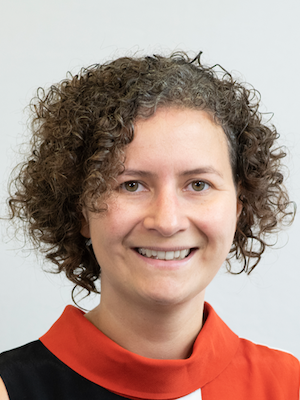R-Ladies Edinburgh were launched in October 2018 by a team of enthusiastic local organisers. Between 2018 and 2021, the group hosted 18 events - most initial events were in-person, but during lockdowns in 2020-21 they were moved online. In 2021, R-Ladies Edinburgh went a bit quiet, as some organisers left and others became very busy with other projects.
I was involved in R-Ladies Edinburgh from the start - first as a participant, and then as a co-organiser of online meetups where we analysed tidytuesday data together. I considered stepping up as a co-organiser back in 2021, but did not feel that I could take it on at that time (I was just changing jobs and life was just too busy). Receiving the Software Sustainability Institute Fellowship for 2023 provided the impetus I needed, and reviving R-Ladies Edinburgh became one of my main Fellowship goals.
Serendipitously, I found out on Twitter about a colleague, Alessia Calafiore, who recently joined the Edinburgh College of Art (part of the University of Edinburgh) and used R for spatial analysis. We met for coffee and she agreed to be the speaker at the R-Ladies relaunch event. We discussed dates and agreed that it would be nice to hold the event near International Women’s Day - we settled on 9th March as the date. The format would be an interactive talk, followed by unstructured time for networking over drinks and snacks.
During the event, Alessia discussed the basics of processing and visualising spatial data with R - she presented these topics in a way that was accessible for people who never analysed spatial data before (such as myself). She then presented a case study focused on the gender pay gap in Scotland - she used the 2011 Census data to calculate the proportion of women compared to men in the most senior professional category (C1), and showed us how to build a map illustrating this proportion in each electoral ward in Scotland. Alessia’s presentation (including all the data, code and explanation) can be found HERE. I immediately had ideas about how I could incorporate building maps into my teaching - I already asked my students to analyse Census data, and I think we could easily incorporate a bit of teaching about maps, to provide the students with another visualisation tool.
There were 14 enthusiastic R-Ladies in attendance, many from the University of Edinburgh, but also some from other organisations (e.g. Forest Research). After Alessia’s talk, most of us stayed and chatted about our experiences in academia, the process of learning and using R, and the different tools that we use to help in our research and coding practice (e.g. GitHub and Obsidian).
If you would like to join us (as a participant or as a speaker), please check out our Meetup page and join the group.


